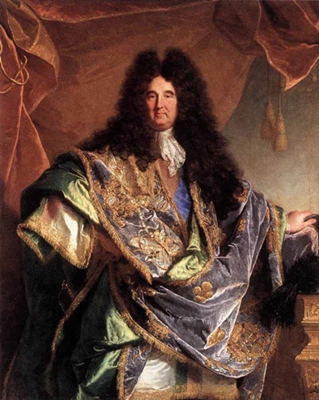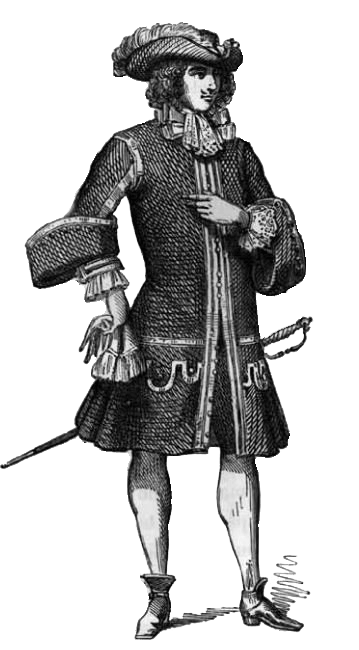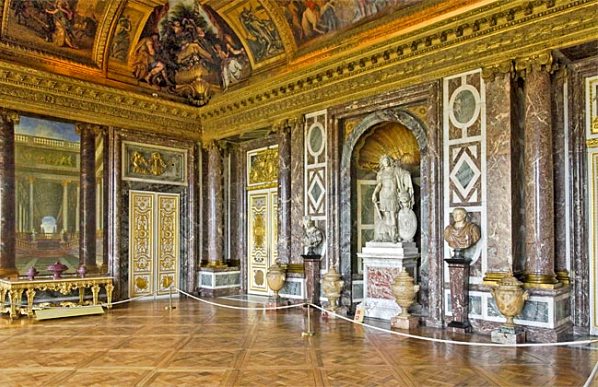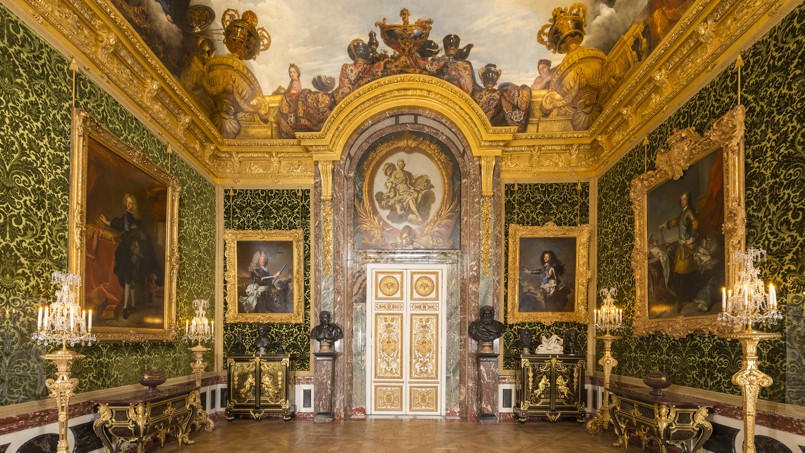La journée des Dupes
The journée des Dupes aka Day of the Dupes is an important event in French History. Actually it was not just one day, but stretched out over several days and it was the first major event to, partially, take place at the château de Versailles.

Things were tense between Louis XIII and his mother Marie de Médicis in early November 1630 and it was all about Cardinal de Richelieu. It wasn’t the first time things were tense between them. Some years earlier, they faced off in an actual war with mother and son on opposite sides. Louis XIII, who became King after his father Henri IV was murdered, never saw too much affection from his mother and his father’s sudden death traumatised him forever. Louis was too young then to rule himself, thus his maman acted Regent for him… and being half a Habsburg herself, she turned France in a Habsburg friendly direction, married her son to a Habsburg, let her favourites rule the Kingdom and weakened France.
As Louis finally managed to grasp power himself, he overturned his mother’s decisions. His mother started to rebel against him, but he forgave her and invited her back to court. Slowly but surely Marie de Médicis regained a position of power at court, also thanks to her protégé Cardinal de Richelieu. By 1629, Marie de Médicis fondness for Cardinal de Richelieu declined so much that she actually started to loathe him.
Marie de Médicis and Michel de Marillac, who had the office of garde des sceaux, were at the head of the newly founded so-called Parti des dévots, which agreed that Catholics all over the world should stick together… and they did not like it at all as Richelieu, being a great strategist, suggested that France should team up with the Protestant German states to overthrow the Habsburg hegemony of Europe.
Another thing was Louis XIII’s Italy campaign and occupation of Savoy. The Parti des dévots was not fond of that either and tried to sabotage the campaign. By then Marie de Médicis was so very anti-Richelieu that she proclaimed she will have him dismissed. Marie de Médicis was not the only one not too fond of Richelieu, he had a strong opposition against him… and Louis XIII was in not a too great position either. He was still heir-less and his brother Gaston was laying in wait to take over the Kingdom, people said Louis was a weak King, that Richelieu influenced him and even ruled him.

The plague broke out in Savoy and forced Louis to withdraw to Lyon, where his mother resided, to avoid contagion. Louis was not in a good mood. He had a toothache for months already and while he escaped the plague, he contracted something else and fell seriously ill. Louis suddenly suffered of a high fever and bloody dysentery. Things were so bad, that Louis was between life and death for over a month. Many believed he would not survive. Marie already prepared to welcome her son Gaston on the throne.
Marie held daily councils on the Richelieu topic, who she now blamed for the tension in Europe and also for the illness of her son, and drew more and more people, unhappy with the Cardinal’s foreign policy, to her side. Richelieu, in the meanwhile, was sure he would be dismissed sooner or later.
Louis XIII, against all odds, recovered and gave orders to move to Paris for the winter. Marie de Médicis took the chance and demanded the dismissal of Cardinal de Richelieu, due to the tension he created in Europe by his anti-Habsburg policy. Richelieu, hearing of it, thought himself lost. After all, he owed Marie de Médicis a lot and she was the one who helped him to rise to power…. surprisingly, upon arriving in Paris, Marie declared that she would not bother the King with the matter anymore. Louis XIII was very relieved to hear that. He had his own issues with Richelieu and started to distrust him, but his mother’s declaration would at least spare him the trouble to chose one over the other… and then Marie forced him to do just that a couple of days later.
Louis decided he would try to reconcile his mother with Cardinal de Richelieu, in order to keep both at his side, and invited all involved parties to a meeting on the next day.
And so, on 9 November 1630, Louis XIII, Marie de Médicis, Michel de Marillac and Cardinal de Richelieu all met at the Palais Médicis, today’s Palais du Luxembourg. Things got heated rather swiftly. However, Cardinal de Richelieu’s arguments in the discussion were so good, thought Louis XIII, that the King decided he would keep him at his side. Louis thus told his mother that he appreciates her counsel and respects her greatly, but the Cardinal would remain to be his First Minister…. Marie de Médicis apparently flew into a rage at once and insulted Richelieu and his niece, Madame de Comballet, who was present as her lady-in-waiting. Madame de Comballet was all tears, Richelieu was shocked and Louis XIII simply speechless. The Queen-Mother stripped Richelieu of all offices he held in her Household, he was the Surintendant of her Household as well as her Aumônier, then stripped all Richelieu relatives who held offices in her Household of their offices as well.
Once she was done, Louis XIII rose quietly from his seat, neither looking or addressing his mother or the Cardinal, and left the Palais.
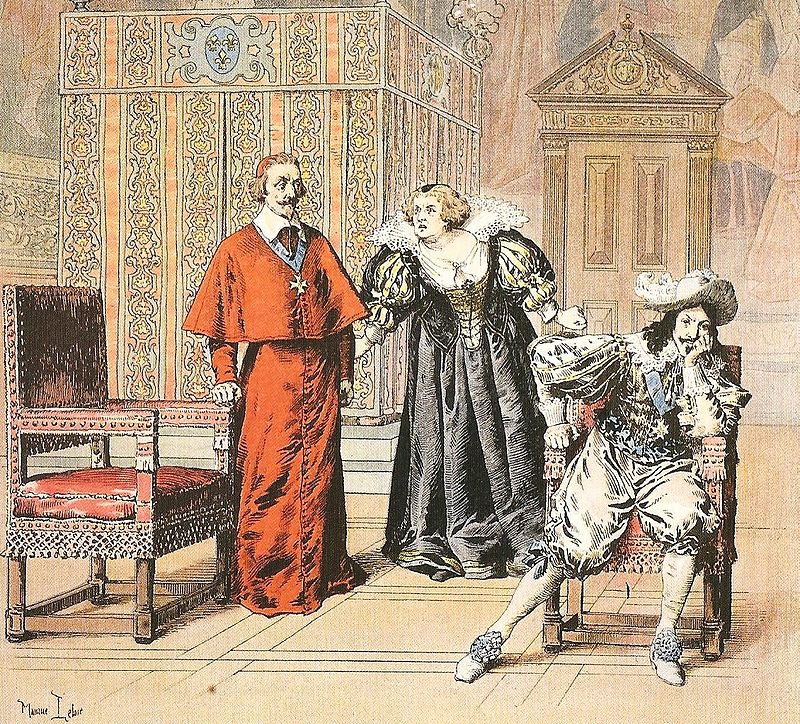
The next day, 10 November, Louis XIII made another attempt to set things straight. On the previous evening, the King had a conversation with Claude de Rouvroy, father of the famous Duc de Saint-Simon, who advised him to stick with Richelieu… but the Cardinal’s fate was still not sure as Louis XIII met with his mother the next day. The meeting took place at the Palais du Luxembourg again, but Marie de Médicis was resolved not to let Cardinal de Richelieu attend it this time. She ordered the doors to be locked and thus Richelieu found himself in a strange situation… but he was a smart man. While Louis and his mother, who now wished to see her friend Michel de Marillac as new First Minister, discussed the matter once more, Richelieu suddenly appeared in the room and casually inquired if they were talking about him.
How did he get in? The Palais du Luxembourg borders on the Petit Luxembourg, which the Queen-Mother had gifted to Richelieu in 1627. The Cardinal used a semi-secret passage connecting both to enter. Marie de Médicis probably forgot about that passage and upon seeing Richelieu she flew into another rage, reproached him for his his ingratitude and ordered him never to appear in front of her again.
Richelieu was apparently so shocked about the new royal outburst that he sank to his knees and kissed the trim of Marie de Médicis’ dress… which made her turn to her son and say “Do you prefer a valet over your own mother?” The King rose, again silent, not looking at either of them, and left the Palais, then Paris, for a hunting trip to Versailles.
Richelieu, unsure what to do or think, returned to the Petit Luxembourg and sat down to prepare his resignation.
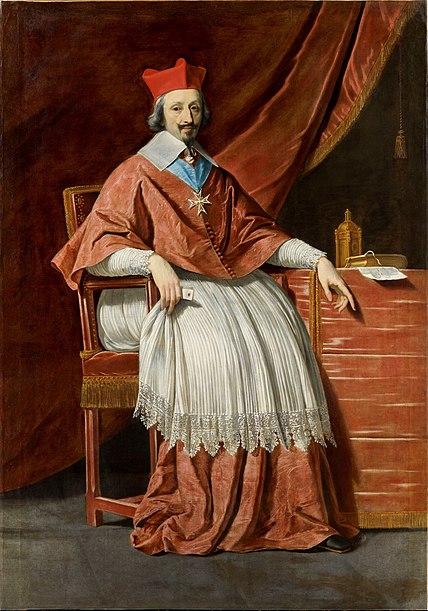
In the meanwhile, the mood in the bordering Palais du Luxembourg improved by the minute. Marie de Médicis saw herself as victorious. She was sure her son would decide for her and not for the Cardinal. Her victory was thus celebrated and Michel de Marillac already hailed as new First Minister. What they did not know, was that Cardinal Richelieu left Paris for Versailles as they were celebrating.
It needed a bit of persuasion for him to ride to Versailles, after all he thought he was lost for good, but once he arrived, Louis XIII received him warmly at once. After a long conversation in private, the King made clear that he would not dismiss the Cardinal, no matter what his mother said. He would not replace a capable clever minister with a ignorant one. Richelieu still proposed to resign, but Louis dismissed the notion.
But what to do about his mother’s demands? Louis XIII proposed the Cardinal should retire to Pontoise for some days.
The King returned to Paris, on 11 November, with a plan in mind. He removed Michel de Marillac from his office, sent him into exile, and gave his position to someone else…. but then, thinking about it, decided instead of exile, Marillac and his brother should be arrested.
Marie de Médicis was completely dumbfounded. It was not at all what she expected to hear upon the return of her son. Louis XIII ordered his mother to stay in her apartments until further notice… and all the rats started to leave the sinking ship. “C’est la journée des dupes”-“It’s the day of the dupes!“, said the Comte de Serrant upon hearing about all of it and involuntarily gave the whole affair the name it is still remembered by.
After the Day of the Dupes, Louis XIII and Cardinal de Richelieu were closer then ever before and united in their policy. Marie de Médicis, on the other hand, lost her son’s trust. Fearing she would try to involve herself again, he ordered her to retire to the château de Compiègne. On 19 July in 1631, Marie fled Compiègne and spent the rest of her years with touring Europe, without a proper home anywhere. She never returned to France, never saw her son again, never met her two grand-sons, the future Louis XIV and his brother Philippe.
